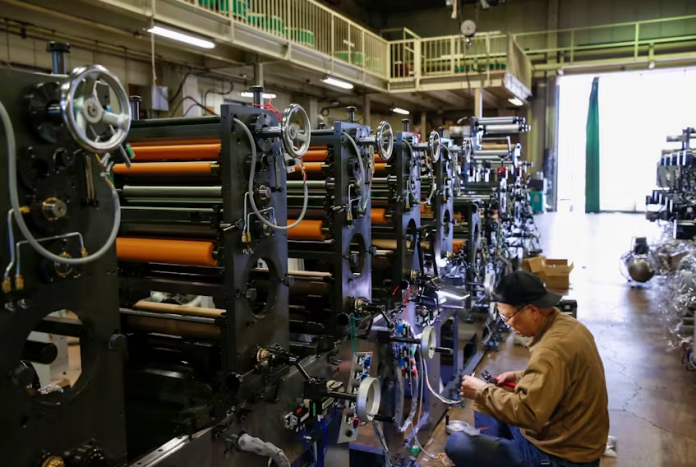Government data revealed on Thursday that Japan’s industrial output fell in January at the fastest pace since May 2020.
The decline in auto production is fuelling fears over the fragility of an economy that slipped into recession late last year.
According to the Ministry of Economy, Trade and Industry (METI), industrial production in January fell by 7.5 per cent from the previous month, slightly worse than the expected forecast of 7.3 per cent. Meanwhile, output fell in 14 of the 15 industries surveyed by METI.
The ministry also laid bare the challenges faced by an economy struggling to recover from a recession late last year. Analysts at Capital Economics warned that the country’s GDP could contract again in the current quarter, with Gabriel Ng, assistant economist, stating:
The plunge in industrial production January suggests that GDP will fall yet again this quarter, which will add to the view that Japan’s economy is in recession.
Car production declined the most, falling 17.8 per cent in January compared to the previous month. Cuts in production of conventional passenger cars and electric drive systems led to the decline in overall performance.
Japanese car manufacturer Toyota Motor suspended deliveries of some models in January after discovering irregularities in certification testing of diesel engines developed by a subsidiary of Toyota Industries.
Toyota’s small-car unit Daihatsu also continued to suspend production at its domestic plants through January over misconduct related to falsifying crash safety tests. Kota Suzuki, an economist at Daiwa Securities, declared:
The drop in automobile-related production, which had remained exceptionally strong amid stagnant [industrial] production due to weak global demand for goods, is a major blow to the Japanese economy.
Production of electrical engineering and information and communication electronic equipment, including lithium-ion batteries, also fell 8.3 per cent. According to a METI spokesperson, the 21.4 per cent drop in lithium-ion battery production is partly due to an adjustment in the global production of electric vehicles.
The METI spokesperson points out that the projected production gains of 4.8% in February and 2% in March are not large enough to offset the January decline. Moreover, the powerful earthquake that struck Japan’s Noto Peninsula on the first day of the New Year seems to have had a limited impact on manufacturers’ plans for January.
Separate retail sales data in Japan fuelled hopes that consumption would help offset some of the pressure from the industrial sector. Sales rose 2.3% year-on-year in January, the 23rd consecutive month of growth, matching the average market forecast.
